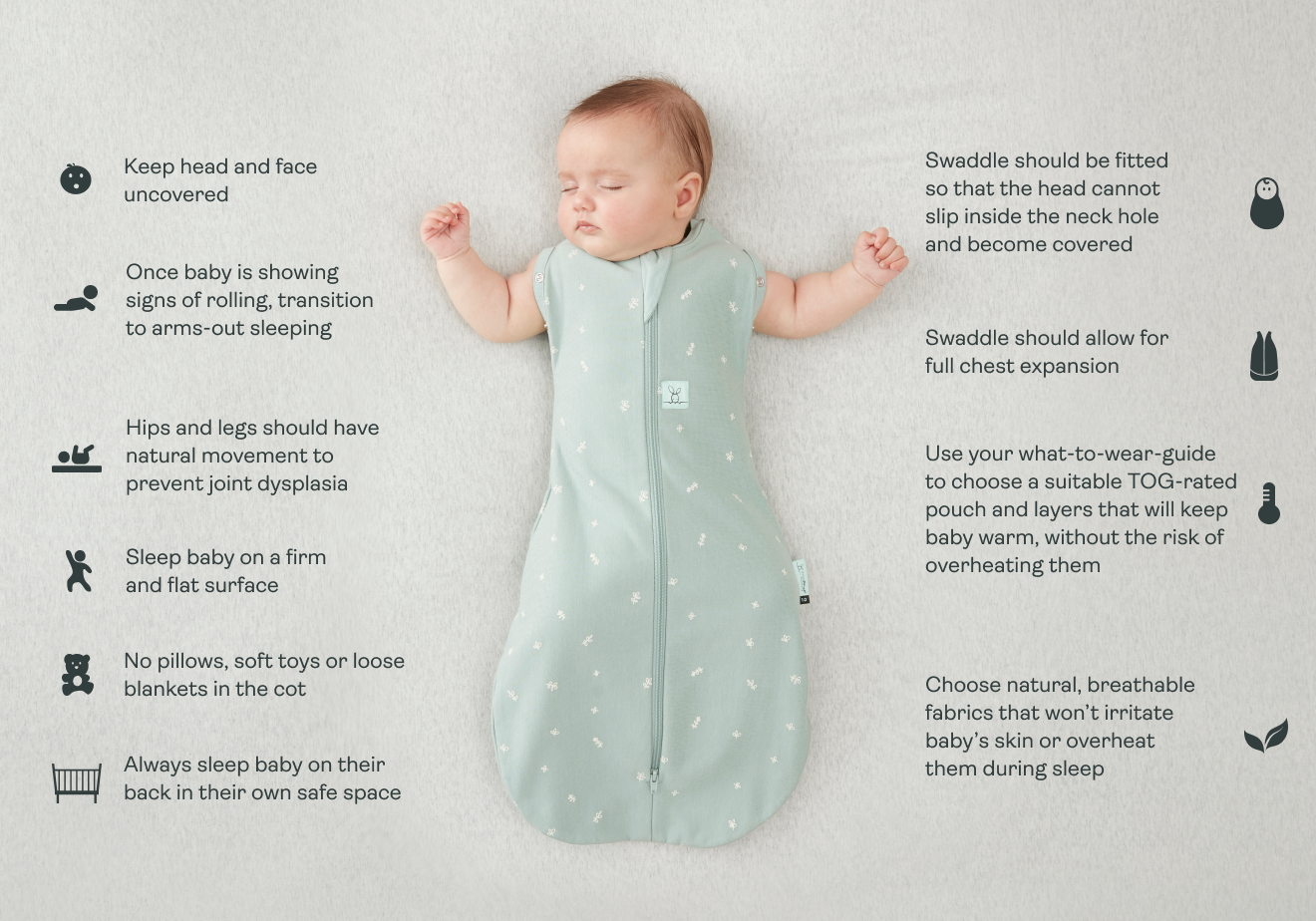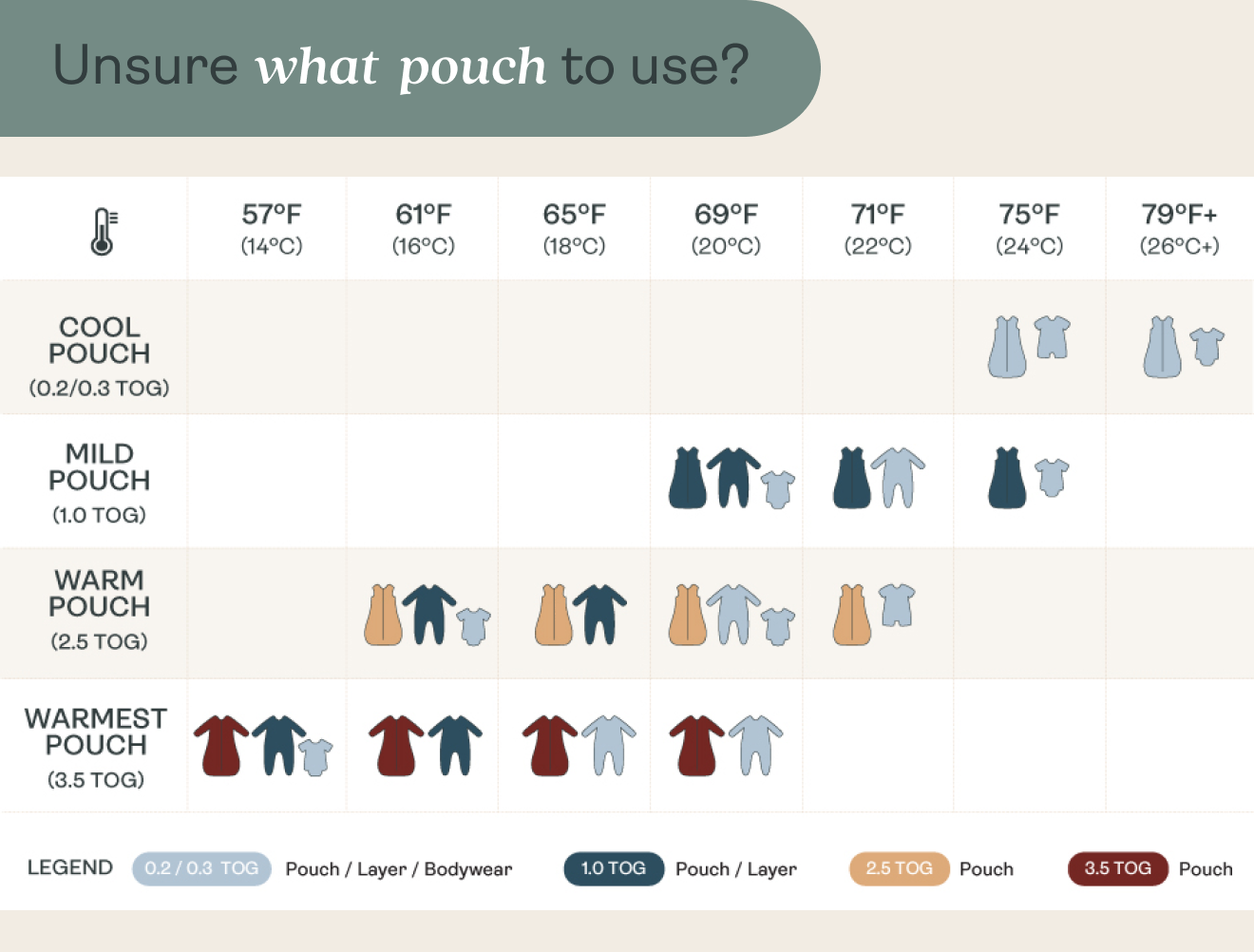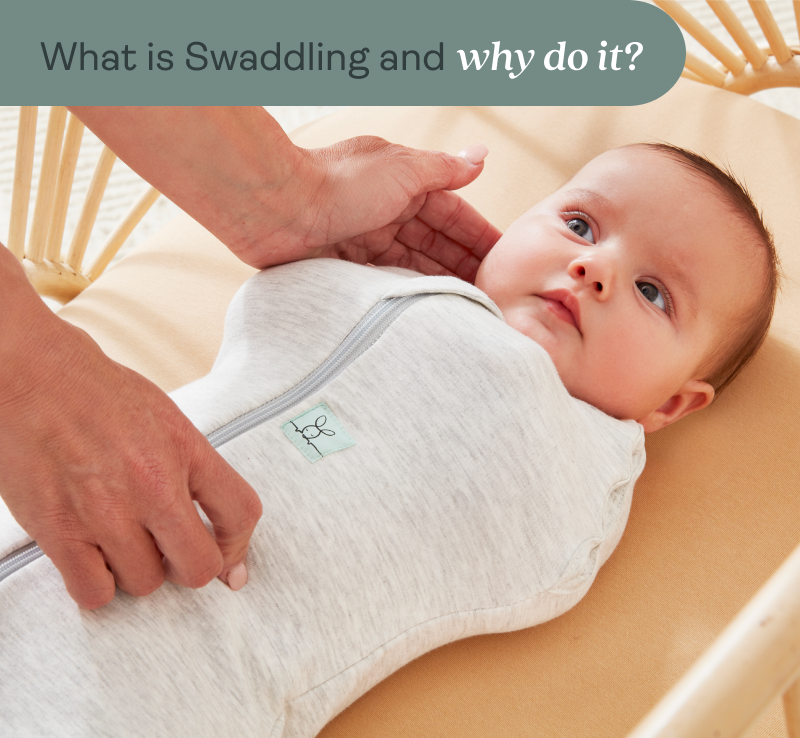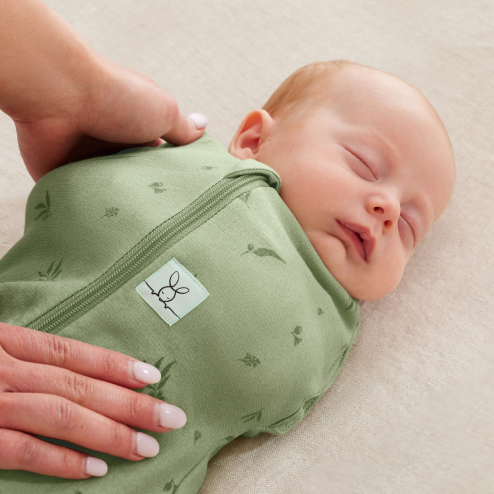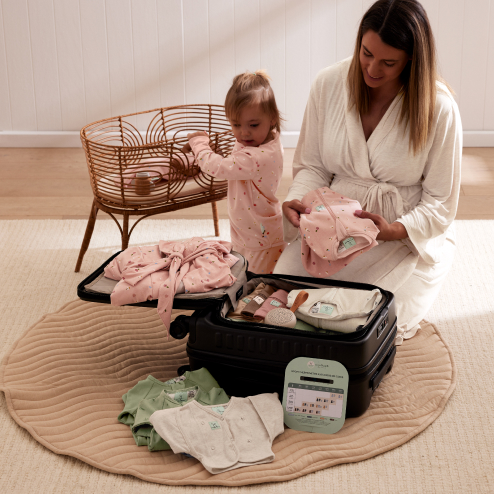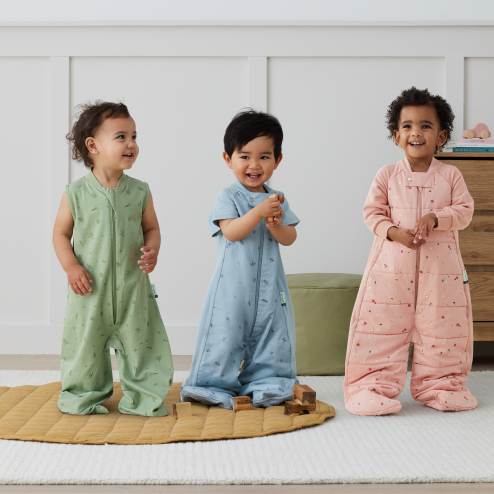
Sleep is a journey, not a destination and the below sleep graph shows us exactly that. In the first 18 months of your baby's sleep, there will be many moments of, ‘oh I so have this’ but also followed by ‘I just need more sleep’ distressing times. The below graph shows us that your baby’s sleep keeps developing, as it's affected by their brain development, while they learn a circadian rhythm but hang in there, mamas and papas, we have your back to help support you on this journey. Today we talk about newborn and infant sleep patterns and the importance of swaddling to help baby sleep.
Baby sleep patterns graph:
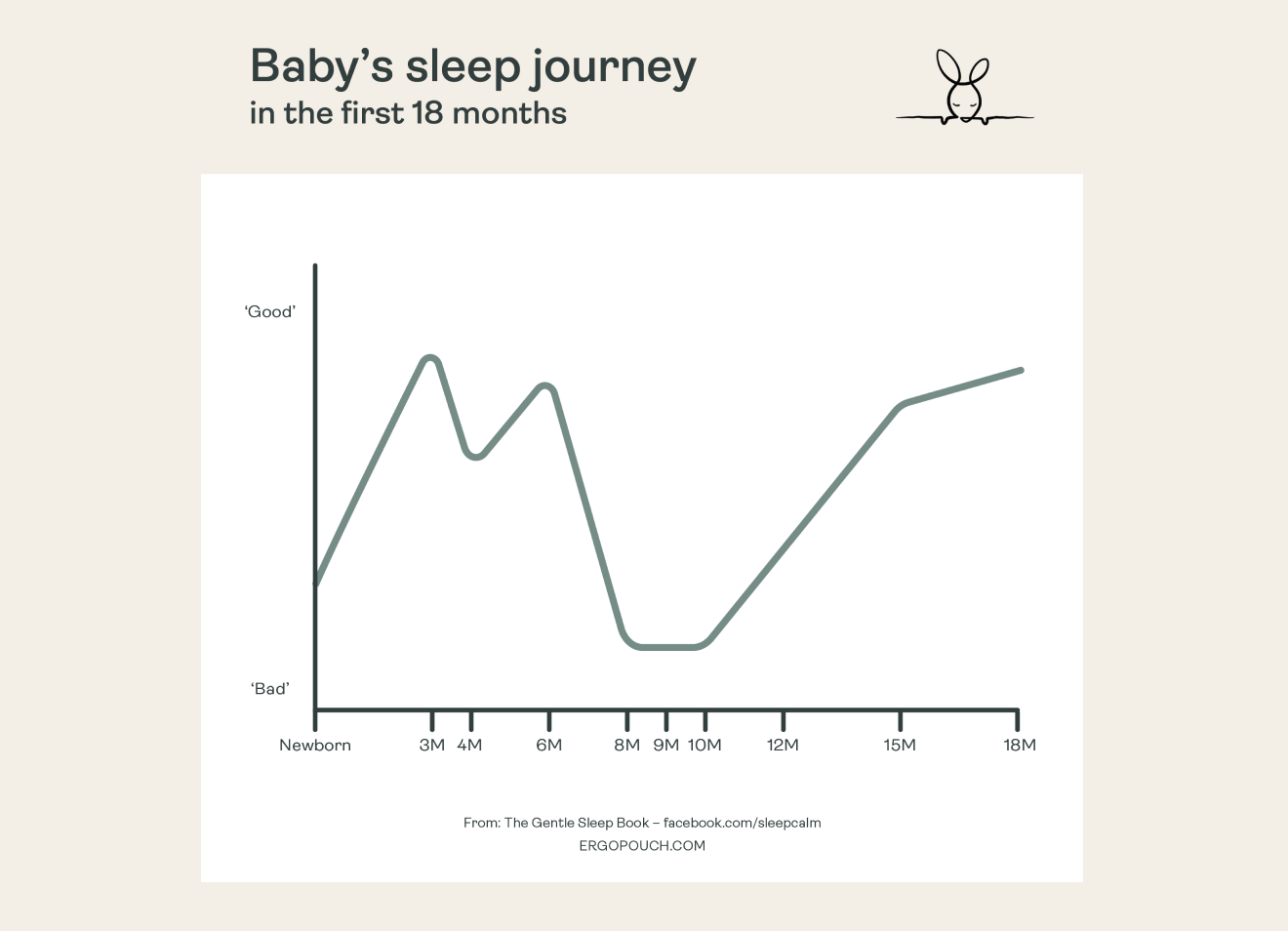
The importance of swaddling baby for safe and restful sleep
At ergoPouch, it’s our mission to help all babies in the UK sleep comfortably and safely. You may be surprised and saddened, as we are, to hear that four children in the die in America every day suddenly and unexpectedly, due to SUDI, stillbirth, and sleep-related accidents. To work towards zero, we will continue to provide safe sleepwear for your little ones for years to come, and help educate families on safe-sleep practices.
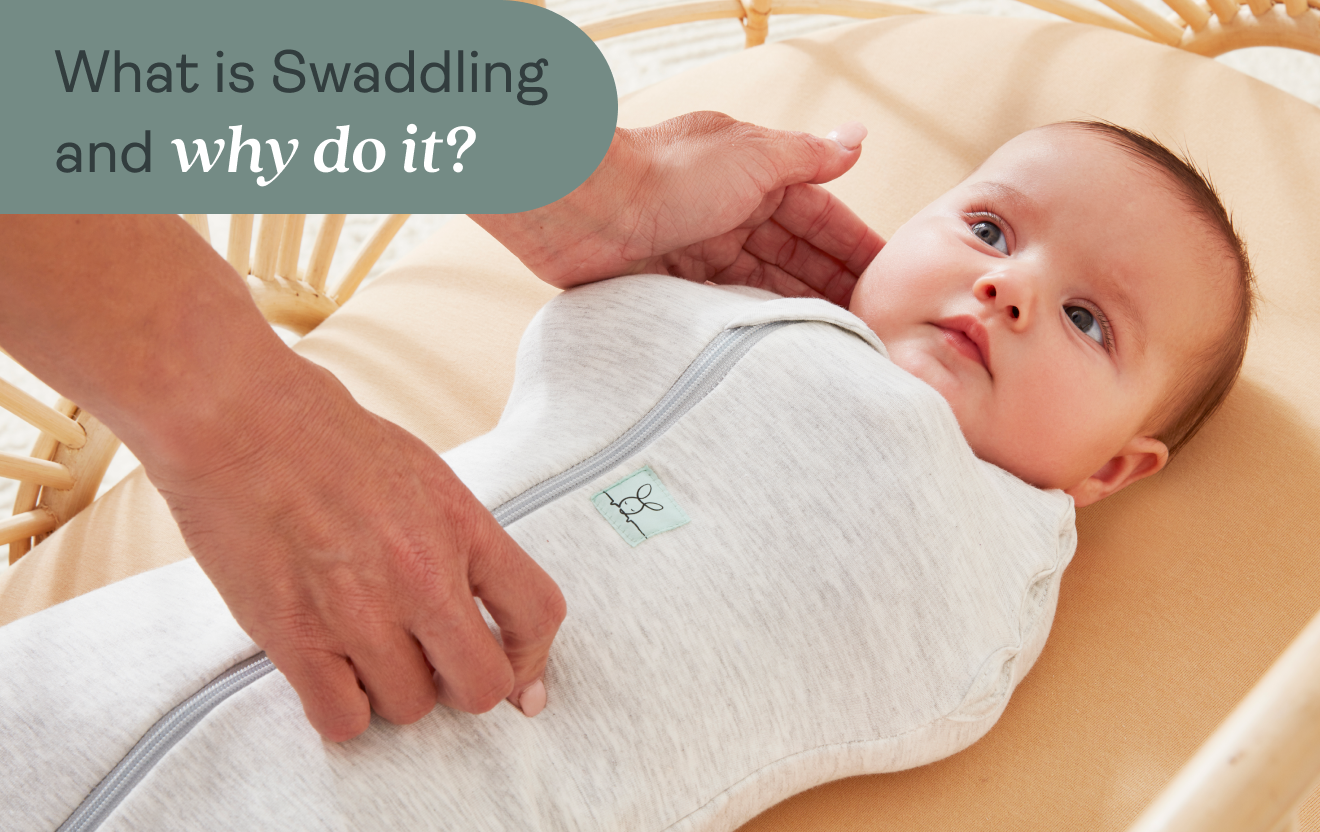
Swaddling is an ancient practice of wrapping your baby in a cocoon, to help them feel safe and secure. We swaddle our babies to avoid the sudden flailing of their arms and head that swiftly snaps them awake, undoing all that hard work it took to get them to sleep. That flailing movement is known as the Moro, or startle reflex. It is a jerk in their bodies that can occur every 20 minutes in some babies. It is completely normal and begins in the first trimester in utero.
Does swaddling help baby sleep?
A loud noise, a sudden bright light, movement or even a parent laughing can trigger the Moro reflex. Swaddling calms this jerking movement while keeping your mini comfortable and content, minimising baby's sleep disruptions.
The transition from the cosy confines of the womb to life outside can be anything but easy for newborns who are used to mum's comforting warmth and movement. Commonly referred to as the 'fourth trimester', your newborn will probably sleep for around 16 hours a day in the first few months as their body grows rapidly, their brain develops, and they learn a circadian rhythm. A swaddle can help your baby adjust to the outside world by providing security and familiarity. It can help to settle your little one if they become overstimulated by their surroundings.
